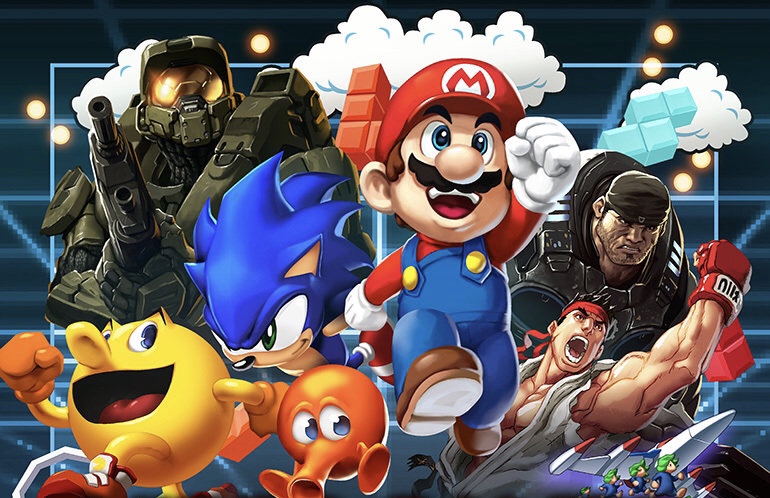Why Don’t Video Games Make Great Movies?
It’s reported that Eli Roth is set to direct an adaptation of the extremely popular video game Borderlands from a script written by Chernobyl creator Craig Mazin for Lionsgate Studios. The game follows fortune hunters on a distant planet called Pandora (no, not that one Avatar fans) and their battles with the local natives of varying shapes, sizes and mutations in a post apocalyptic world.
Roth has had an unusual run of directing after starting out with ‘gorenography’ being his forte (Cabin Fever, Hostel, The Green Inferno) to a less than welcome remake of Death Wish, starring an actor who appears to be very, very bored in everything he appears in for the last ten years or so to his last outing being an adaptation of a kids book starring Cate Blanchett and Jack Black The House With A Clock In It’s Walls.
Borderlands is an OTT version of Mad Max and features mutants, abnormalities and deeply weird imagery. It’s vast and sprawling, colourful and vibrant. Which makes me wonder what the script could be, as anyone who saw the seriously bleak Chernobyl can attest to colourful and vibrant that was not. It’s intriguing in the least.

The thing that hangs over this announcement is that historically, video games don’t adapt into feature films particularly well. It’s a discussion that’s long gone on from the release of Super Mario Bros. (1993), a horribly misjudged film that tried to adapt the hugely popular Nintendo games in a version that did not honour the original series at all and was more concerned with shoe horning the latest hardware into a film (the newly released Super Scope for the Super Nintendo). The late Bob Hoskins and Dennis Hopper both described the making of the film as horrible and expressed deep regret at being involved.
Indeed the 1990s produced some pretty terrible adaptions of some video games most notably the Jean-Claude Van Damme starring Street Fighter (1994). The hugely enjoyable six button bashing beat-em-up was turned into a limp exercise of not really grasping its source material and making instead a crappy action film with unconvincing fight sequences. Worse of all, it was actually boring and took a questionable approach to racial issues in its casting. Another downside was that it marked the last on screen appearance of the great Raul Julia, arguably the film’s high point (there have been two further live action Street Fighter films, neither of which I’ve seen nor have any desire to do so as they look atrocious).

The flip-side to this was the trashy but still quite fun Mortal Kombat (1995) from Paul W. S. Anderson which at least knew it was a ridiculous in its premise and played up to it with Christopher Lambert even more hammy than usual (Anderson would later be responsible for the Resident Evil series which varied in quality but again were quite fun). But beware, the sequel, Mortal Kombat: Annihilation (1997) really isn’t worth seeking out. The 1990s ended with the truly poor Wing Commander (1999) adaption of the space set military strategy game, which was clearly hamstrung by a low budget and poor special effects and a truly terrible script.
In the 2000s, the aforementioned Resident Evil series began along with Lara Croft: Tomb Raider (2001) and it’s sequel. The first is fun with Angelina Jolie on good form as live action Lara Croft with its globe trotting adventures but again received a diminished return from the sequel besides both films having support from Daniel Craig, Gerrard Butler and Jon Voight amongst others (both those film’s director Jan De Bont started his directorial career with the tremendous Speed (1994).

Then from director Uwe Boll, came some of the worst films ever committed to screen in the form of Alone In The Dark, House of the Dead and Bloodrayne. Alone In The Dark is in no uncertain terms atrocious. It’s not even worth seeking out out of perversity. It can’t be that bad, surely? It is. Unbelievably, two of those films spawned sequels. Boll made further adaptions of games I’m not even going to draw attention to as I’ve not seen them and I’ve no doubt their quality is very low.
More recent films have faired better. Warcraft from Duncan Jones remains the biggest video game adaption to date at the box office despite having received mixed reviews, Detective Pichachu defied the odds to become a box office smash (with the inevitable sequel due in the near future) and the discussion continues today to the recent release of a long mooted adaption of Sonic The Hedgehog, which whilst having mixed reviews has already been a sizeable box office success. It’s worth noting that none of the films have made over $500 million and that despite Warcraft making $439 million, it was still deemed a box office failure which is why the inevitable sequel hasn’t appeared. There are plenty of further videogame adaptions coming including another iteration of Mortal Kombat, Call of Duty and Tomb Raider 2 starring Alicia Vikanda and directed by acclaimed British director Ben Wheatley (Free Fire, High Rise) which makes this one of the more interesting ones to keep an eye on. And it appears the the so-long-in gestation of Uncharted (which had a fan made Nathan Fillion short released) is finally coming with Tom Holland and Mark Wahlberg.

It can be argued that video games don’t adapt cinematically because the gaming experience can be so immersive that a film version is more like watching someone else playing a game. One thing I’ve never understood is that given the narrative used in modern gaming being so engrossing why Hollywood hasn’t tapped up the scriptwriters for some original pieces. Anyway, I’m off to polish my Titanfall script off and sell it for millions. Game on.

